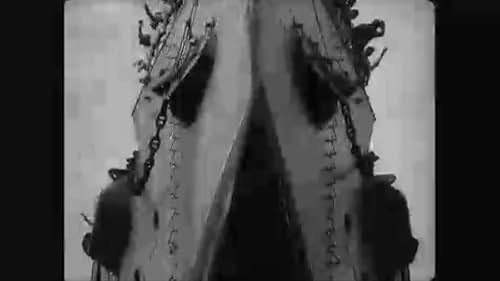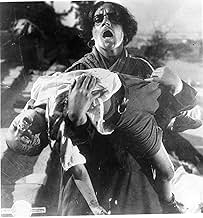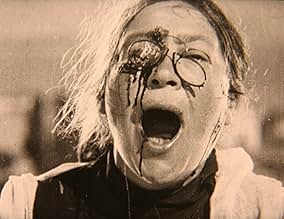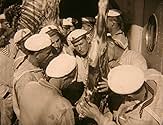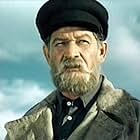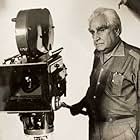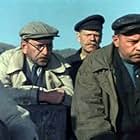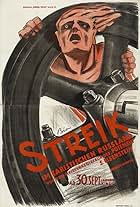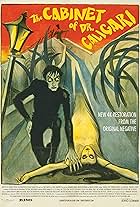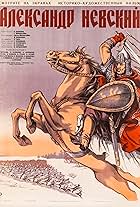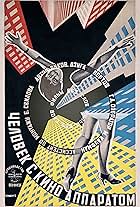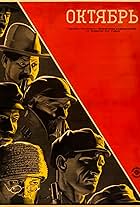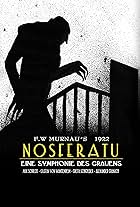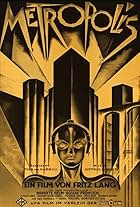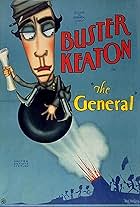Nel mezzo della Rivoluzione Russa del 1905, l'equipaggio della nave da guerra Potemkin si ammutina contro il regime brutale e tirannico degli ufficiali di servizio sulla nave. Ne consegue un... Leggi tuttoNel mezzo della Rivoluzione Russa del 1905, l'equipaggio della nave da guerra Potemkin si ammutina contro il regime brutale e tirannico degli ufficiali di servizio sulla nave. Ne consegue una manifestazione per le strade di Odessa che sfocia in un massacro da parte della polizia.Nel mezzo della Rivoluzione Russa del 1905, l'equipaggio della nave da guerra Potemkin si ammutina contro il regime brutale e tirannico degli ufficiali di servizio sulla nave. Ne consegue una manifestazione per le strade di Odessa che sfocia in un massacro da parte della polizia.
- Premi
- 1 vittoria
- Young Sailor Flogged While Sleeping
- (as I. Bobrov)
- Woman With Pince-nez
- (as N. Poltavtseva)
- Student
- (as Brodsky)
- Odessa Citizen
- (as Sergei M. Eisenstein)
- Recruit
- (as A. Fait)
Trama
Lo sapevi?
- QuizThe film censorship boards of several countries felt this movie would spread communism. France imposed a ban after a brief run in 1925; it lifted it in 1953 after the death of Russian leader Joseph Stalin. The UK banned it until 1954.
- BlooperIn the Imperial squadron near the end of the film, there are close-ups of triple gun turrets of Gangut-class dreadnought. It possibly was made this way to show the power of Imperial fleet, but battleships of 1905 were much smaller pre-dreadnoughts, with twin turrets only, just like "Potemkin". "Ganguts" entered service in 1914.
- Versioni alternativeSergei Eisenstein's premiere version opened with an unattributed quote from Leon Trotsky's "1905": The spirit of mutiny swept the land. A tremendous, mysterious process was taking place in countless hearts: the individual personality became dissolved in the mass, and the mass itself became dissolved in the revolutionary impetus. This quote was removed by Soviet censors in 1934, and replaced by a quotation from V.I. Lenin's "Revolutionary Days": Revolution is war. Of all the wars known in history, it is the only lawful, rightful, just and truly great war...In Russia this war has been declared and won. The original text was restored in 2004.
- ConnessioniEdited into Seeds of Freedom (1943)
It is hard to imagine that anybody who has seen quite a few films in the past few decades would be unaware of this film, but it is perhaps understandable that fewer have had the opportunity to actually sit down and watch. I had never seen this film before but had seen countless references to it in other films and therefore considering it an important film to at least see once. The story is based on real events and this only serves to make it more interesting but even without this context it is still an engaging story. The story doesn't have much in the way of characters but it still brings out the brutality and injustice of events and it is in this that it hooked me surprisingly violent (implied more than modern gore) it demonising the actions and shows innocents falling at all sides in key scenes. The version I saw apparently had the original score (I'm not being snobby modern rescores could be better for all I know) and I felt it worked very well to match and improve the film's mood; dramatic, gentle or exciting, it all works very well.
The feel of the film was a surprise to me because it stood up very well viewed with my modern eyes. At one or two points the model work was very clearly model work but mostly the film is technically impressive. The masses of extras, use of ships and cities and just the way it captures such well organised chaos are all very impressive and would be even done today. What is more impressive with time though is how the film has a very strong and very clean style to it it is not as gritty and flat as many silent films of the period that I have seen; instead it is very crisp and feels very, very professional. Of course watching it in 2004 gives me the benefit of hindsight where I can look back over many films that have referenced the images or directors who have mentioned the film in interviews; but even without this 20:20 vision it is still possible to see how well done the film is and to note how memorable much of it is the steps and the firing squad scenes are two very impressive moments that are very memorable. The only real thing that might bug modern audiences is the acting; it isn't bad but silent acting is very different from acting with sound. Here the actors all over act and rely on their bodies to do much of their delivery word cards just don't do the emotional job so they have to make extra effort to deliver this.
Overall this is a classic film that has influenced many modern directors. The story is engaging and well worth hearing; the directing is crisp and professional, producing many scenes that linger in the memory; the music works to deliver the emotional edge that modern audiences would normally rely on acting and dialogue to deliver and the whole film is over all too quickly! An essential piece of cinema for those that claim to love the media but also a cracking good film in its own right.
- bob the moo
- 18 set 2004
- Permalink
I più visti
- How long is Battleship Potemkin?Powered by Alexa
Dettagli
- Data di uscita
- Paese di origine
- Lingue
- Celebre anche come
- Battleship Potemkin
- Luoghi delle riprese
- Sevastopol, Crimea, Ucraina(battleship scenes)
- Azienda produttrice
- Vedi altri crediti dell’azienda su IMDbPro
Botteghino
- Lordo Stati Uniti e Canada
- 51.198 USD
- Fine settimana di apertura Stati Uniti e Canada
- 5.641 USD
- 16 gen 2011
- Lordo in tutto il mondo
- 61.389 USD
- Tempo di esecuzione1 ora 15 minuti
- Colore
- Mix di suoni
- Proporzioni
- 1.25 : 1
Contribuisci a questa pagina


